Alright, let’s talk chickens. They say chickens are the gate way drug of homesteading. It’s oddly true. Once you get chickens and saunter right past eggs at the store, it makes you feel like there isn’t anything you can’t do. After that you start making bread, raising your own meat, growing your own fruits and vegetables, and the list goes on and on.
Whether you are thinking of getting chickens, or have had chickens for awhile, you might be wandering the best way to take care of all those chickens.
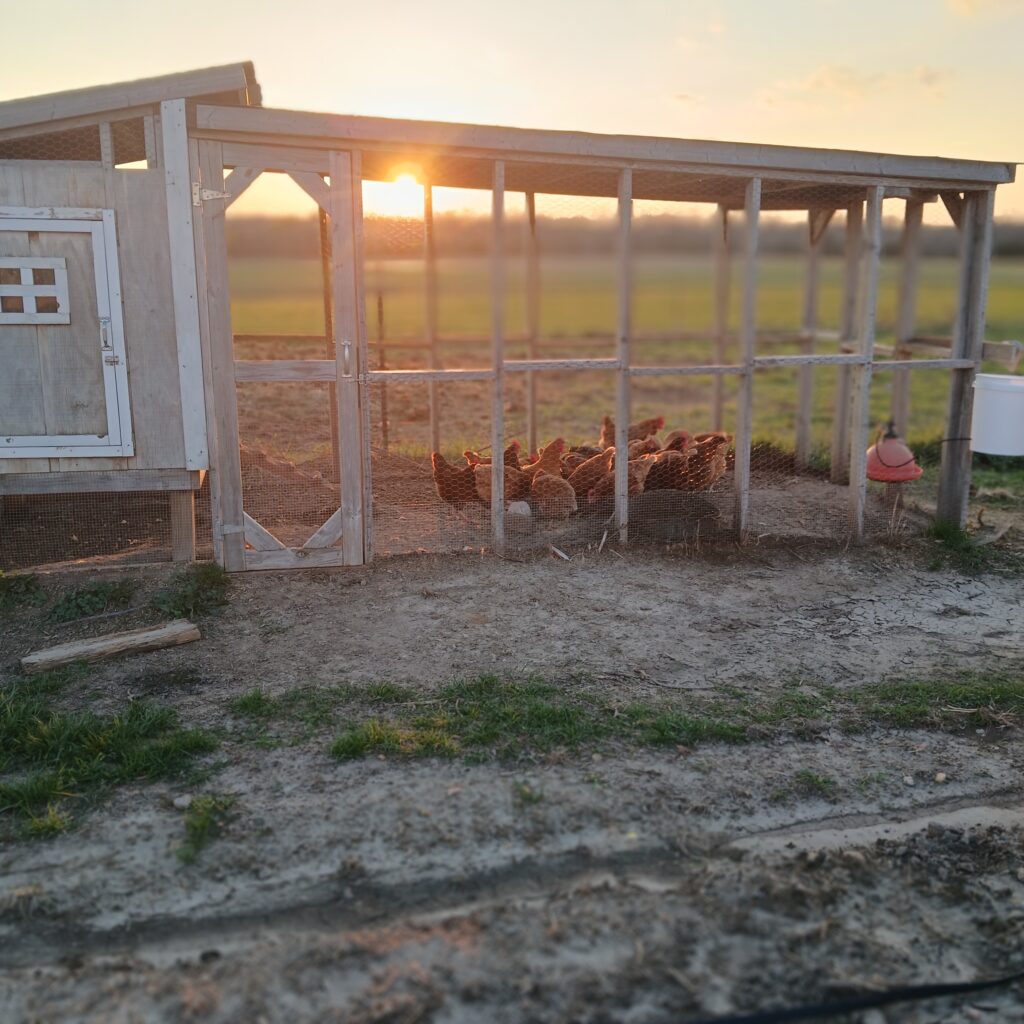
Chicken Breeds:
It may seem that there are as many chicken breeds as there are stars in the sky, but don’t let that discourage you. In my personal experience the best chicken breed for beginners is a Buff Orpington. They’re probably what a great deal of people picture in their minds when they think about what a traditional barnyard chicken looks like. They are a beautiful yellow colored dual purpose breed, meaning that you can raised them for eggs or meat. More than that, however, they’re among the friendliest, easiest keeping chickens that I’ve ever owned. There are many other breeds that are great for beginners as well. Rhode Island Red chickens are also very popular as well as the Plymouth Rock breed.
Of course, different breeds mean differences in egg production. From the laying frequency to egg color to egg size, the breed of the chicken makes the difference. We currently have all brown egg laying hens that are mostly hybrids (crosses of two or more breeds) because those chickens usually lay more frequently than the more traditional, heritage, breeds. However, those hybrid chickens are generally not very good mothers if you plan to raise your own chicks.
Quick bonus tip: You Don’t Need a Rooster to Get Eggs! The primary function of a rooster is to fertilize eggs, that’s pretty much it. A really good rooster will also protect the flock, but not always. So, if you don’t want to raise your own baby chicks you don’t need a rooster. That is, unless, you just really like the sound of a rooster crowing at random hours and strutting around acting all cocky (pun intended).
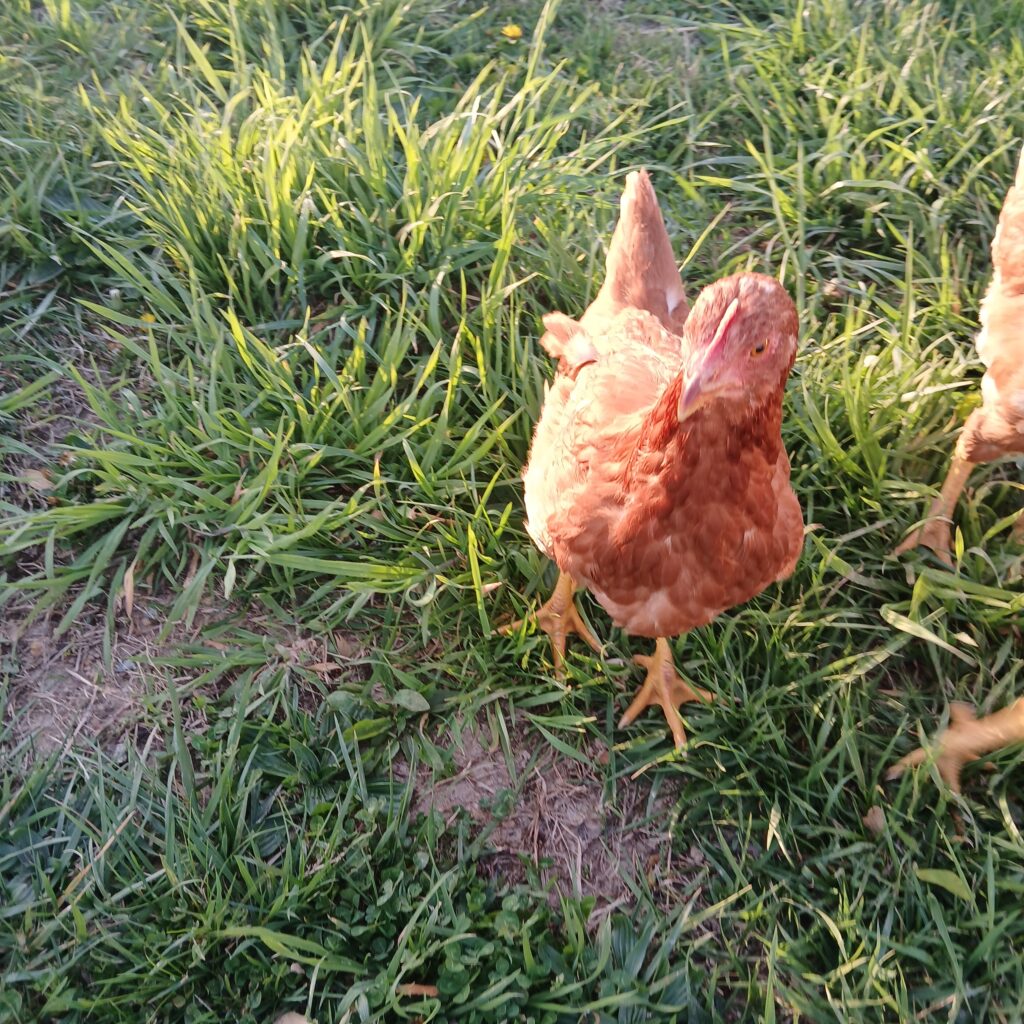
Where to Begin:
If you’re starting with baby chicks, as opposed to buying adult chickens, all reputable hatcheries will provide you with basic instructions on their care. They’ll tell you what temperature you need to keep your brooder as well as how to introduce the chicks to feed and water. As they get older, you’ll slowly reduce the temperature in the brooder until their feathers have come in and they’re ready to be introduced to the outside world.
As I mentioned, any hatchery worth buying from will give you all the information you need and likely be willing to provide you with any advice, should you need it. It’s important to understand, that raising baby chicks can be stressful at times and loss is sometimes part of the process. Hang in there, it’s worth it.
What Chickens Need:
Food-
The best thing to do is to find a good quality, local, feed source for your chickens. Some breeds are better at foraging than others while some will need a regular, high quality ration, to maintain a regular egg laying schedule. That’s just one of those things that you’ll have to research when you’re picking out what breed, or breeds, you want.
Most chicken feed rations are corn and soy based with a few other things added in, like calcium, for healthy egg production. There are Non-GMO feeds available as well as more conventional feeds, depending on what you’re looking for. You can also, in some cases, find feeds that are free of any soy products. The whole idea is to find something that will keep your chickens healthy and happy while fitting in with your goals for your flock.
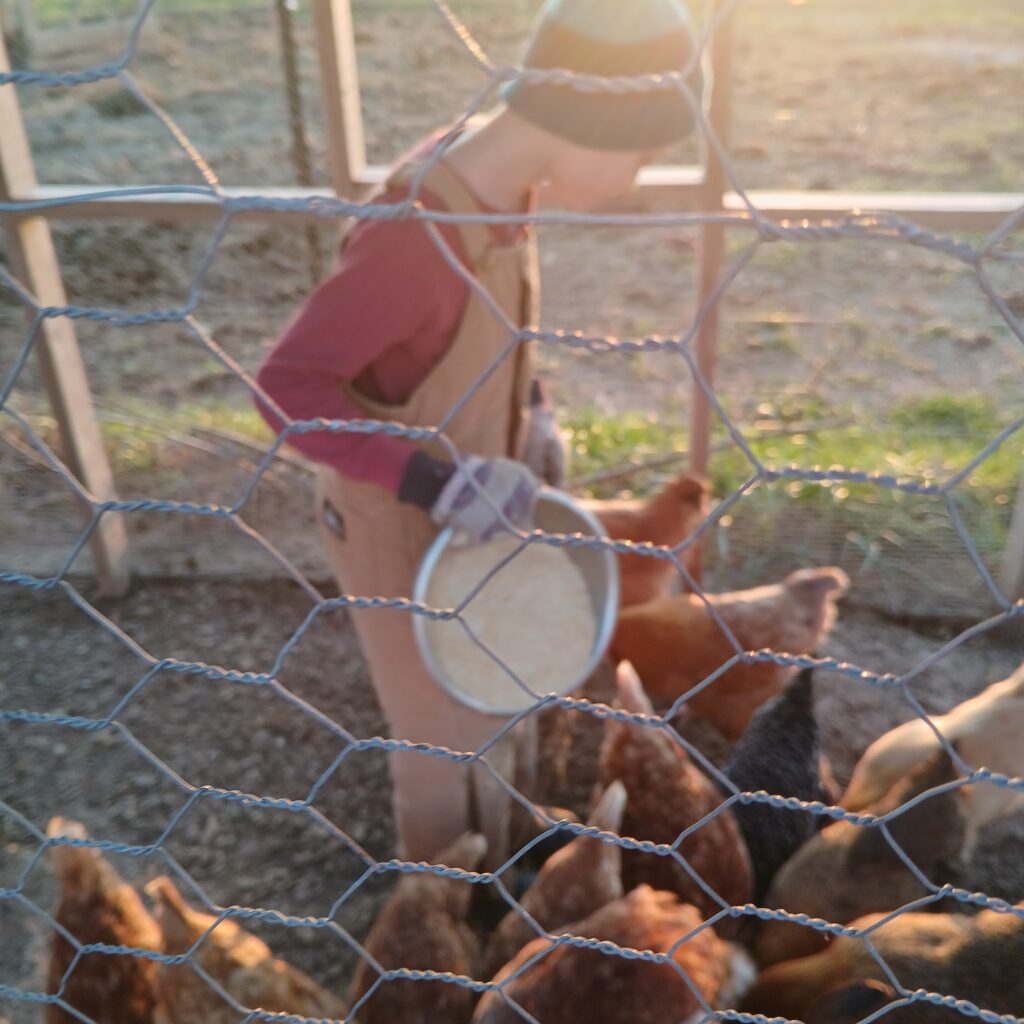
Shelter-
A shelter for your chicken can be as simple or elaborate as you wish. I’ve seen what I would consider to be fancy chicken coops that are very pleasing to the eye while providing the hens with a luxurious palace in which they can lay eggs and sleep in comfort. On the other hand, I’ve seen coops that simply provide the chickens with a roof over their heads and a wall or two, to protect them from the wind. The whole idea is to provide a place that will make them feel safe because an anxious chicken isn’t going to be as productive as a comfortable chicken.
One thing a shelter must do, is keep the birds safe from predators. A good coop and run will, at the very least, make any varmints looking for a quick chicken dinner work for their meal. Chicken wire, or hardware cloth, is a great way to close up any spaces that might allow a predator to reach in and snag one of your chickens. It’s even a good idea to run the wire out on the ground a foot or so to slow down anything that might try to dig into your coop or run.
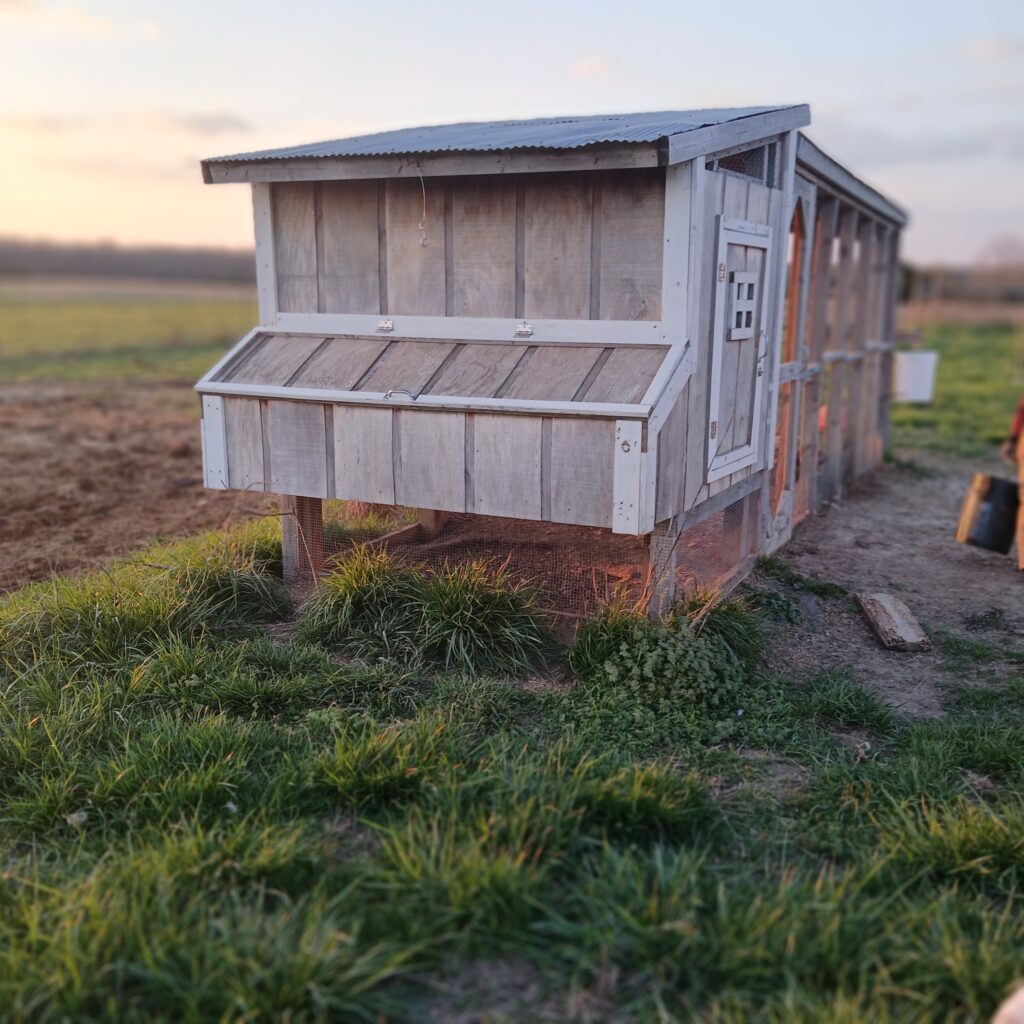
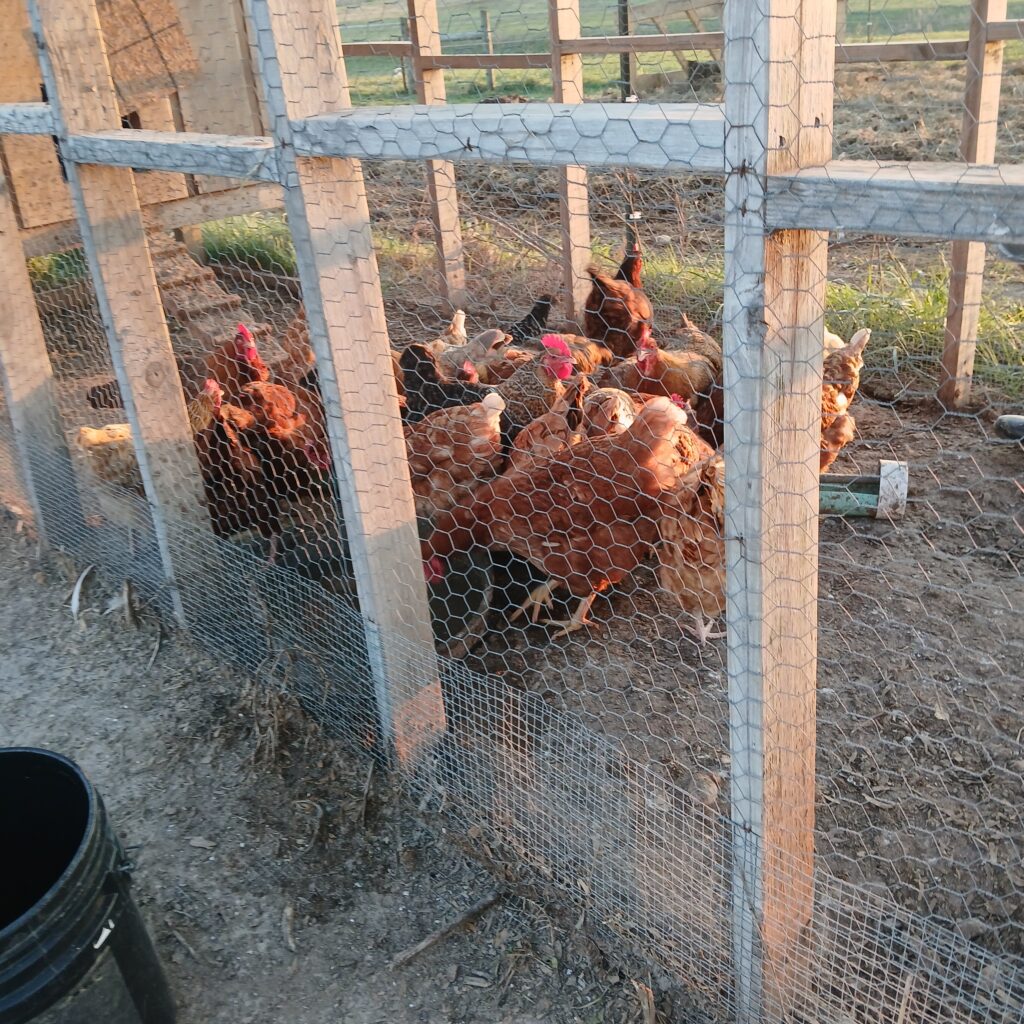
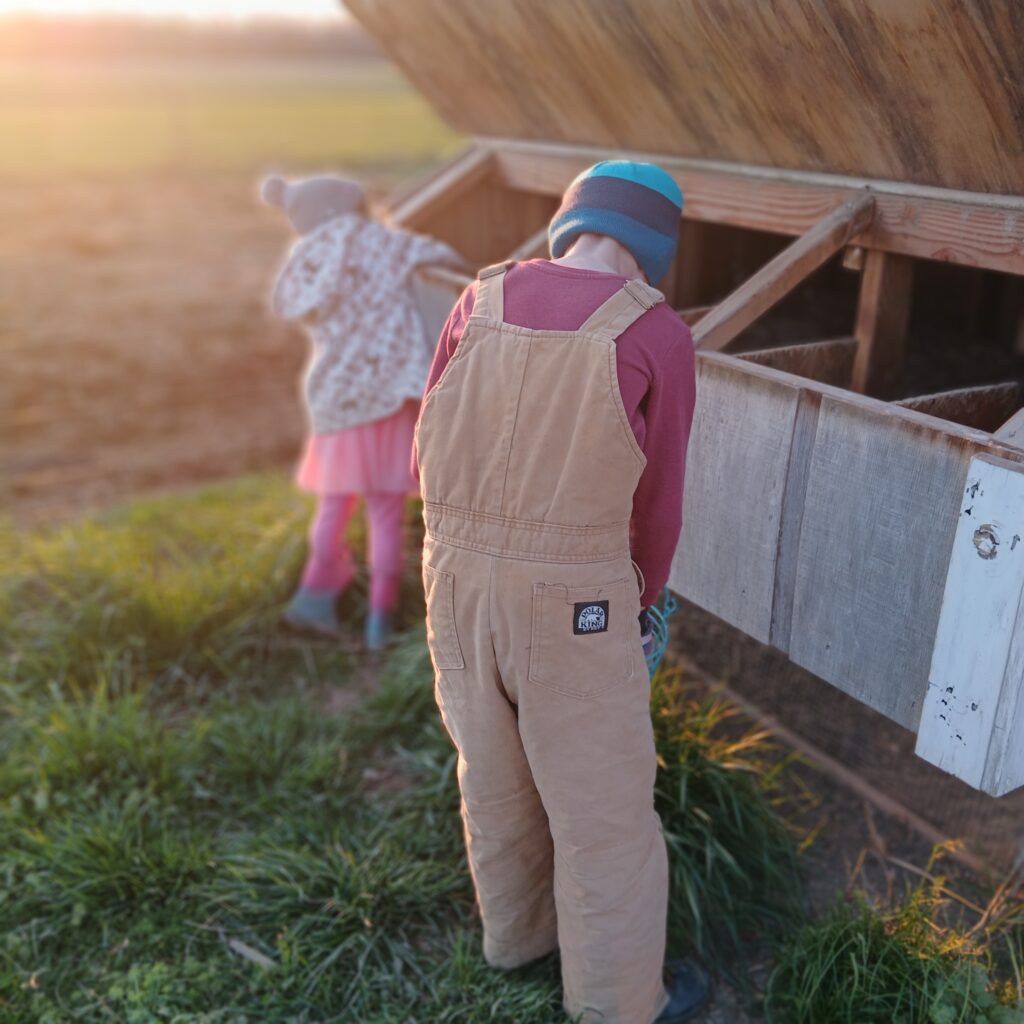
Space-
There are just about as many suggestions out there on space requirements for chickens as there are chicken owners. I’ve heard numbers ranging from two square feet per chicken to eight square feet per chicken. I’ve found that four square feet seems to work fairly well. Of course, the size of the chicken will play a factor in this. Larger breeds will obviously need a bit more space than smaller breeds.
One way to supplement space, which is something we do, is to let the chickens roam around from time to time. We will prop the door of the coop open and let our chickens run through the garden and our yard. A major bonus for us is that they are very good at eating ticks and other unwanted bugs that like to hang around. Of course, if you prefer you can also use a chicken tractor to move them around every day or two, which might allow you to sneak by on a slightly smaller shelter.
Overall, if your chickens are over crowded you’ll be able to tell by their behavior. Overcrowding leads to stress, which leads to the chickens picking on one another. You’ll see missing feathers (bald spots) or other injuries that come from aggressive behavior toward one another.
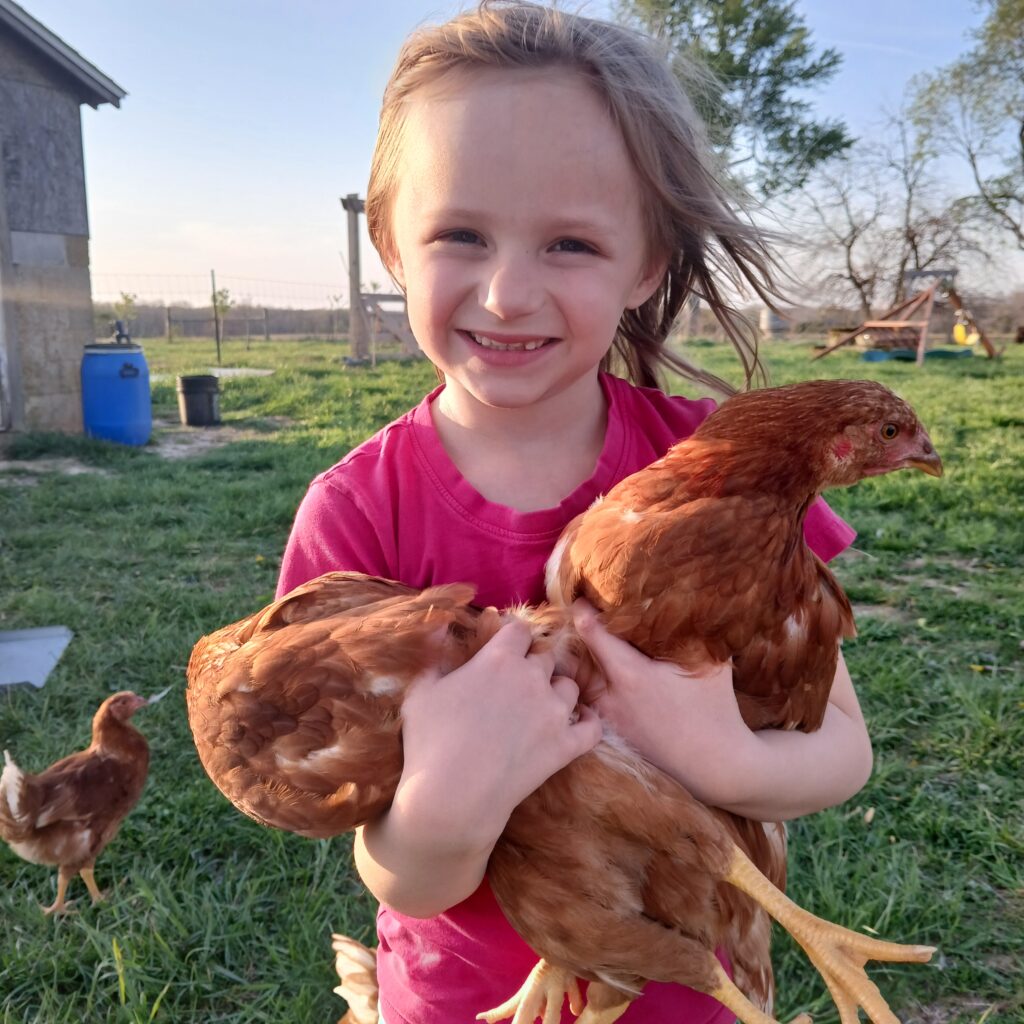
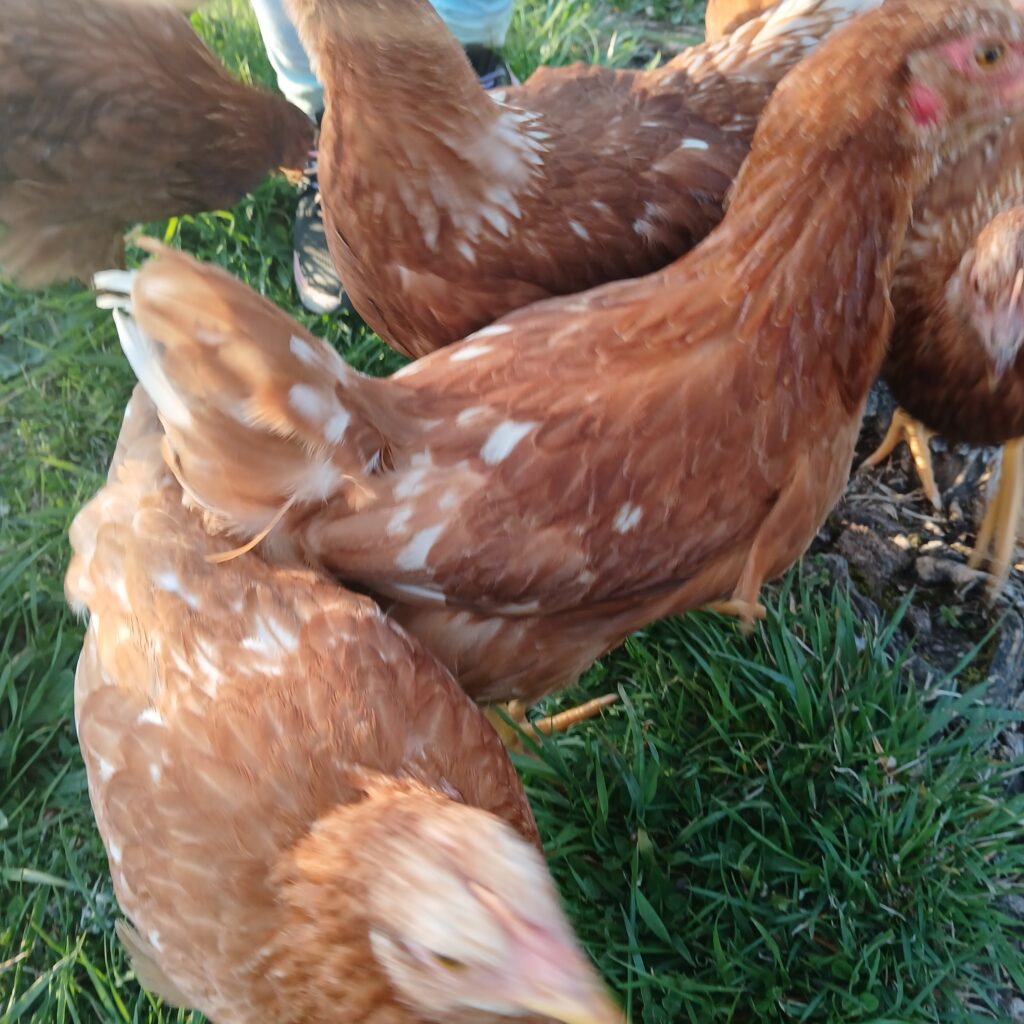
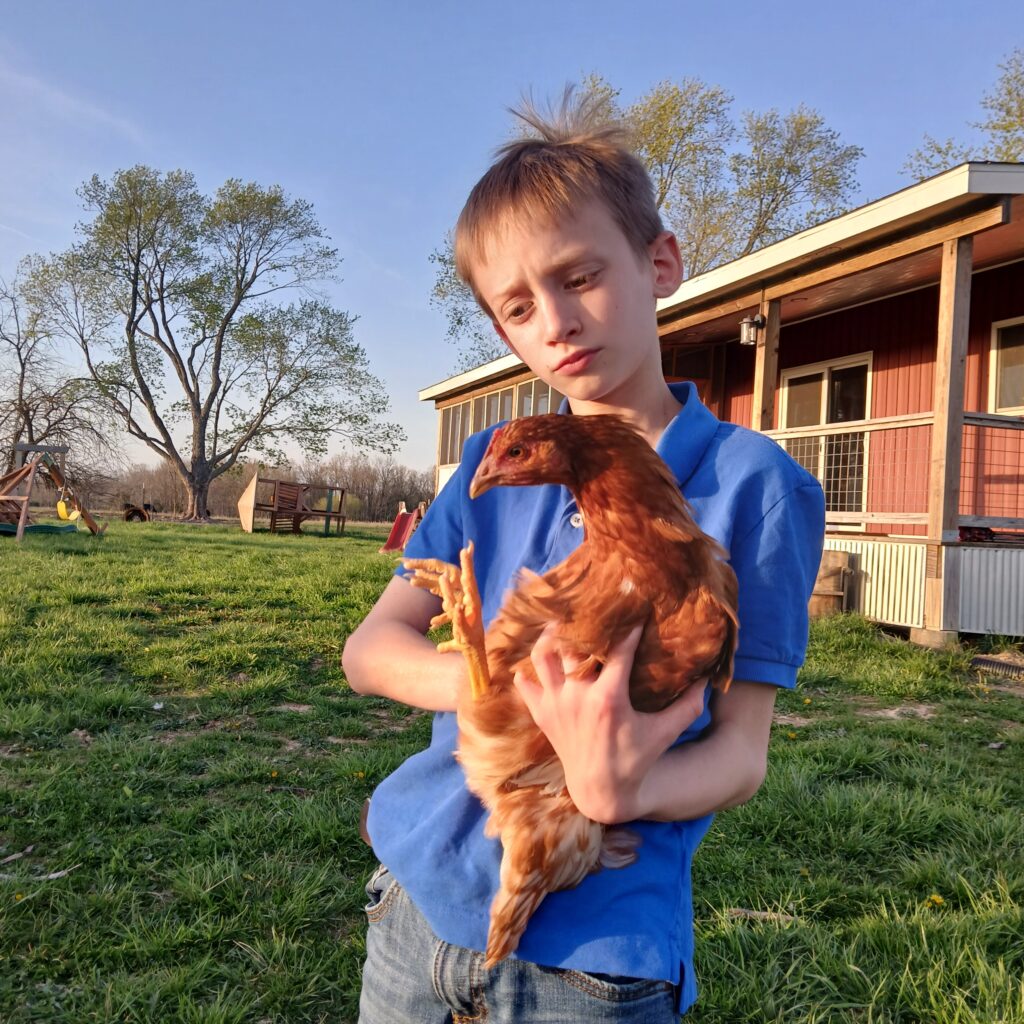

What To Do With All Those Eggs:
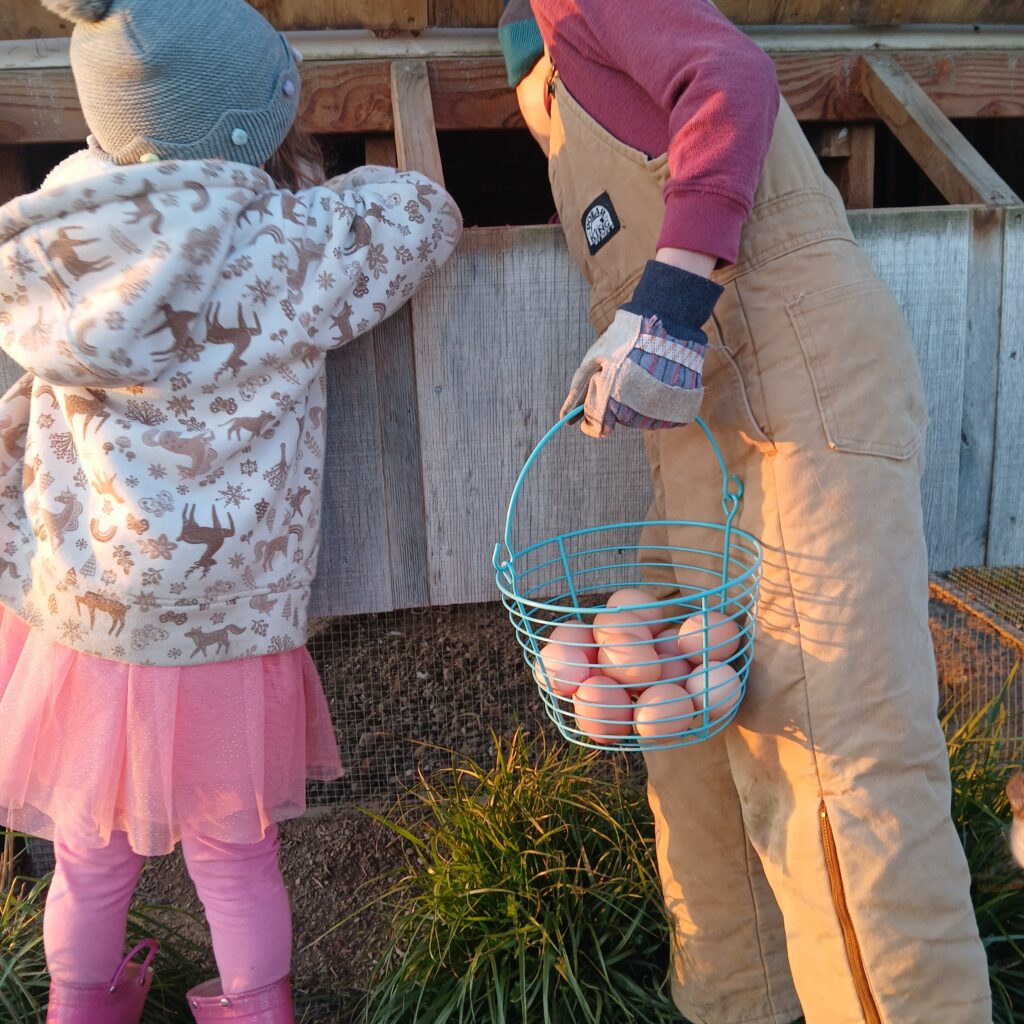
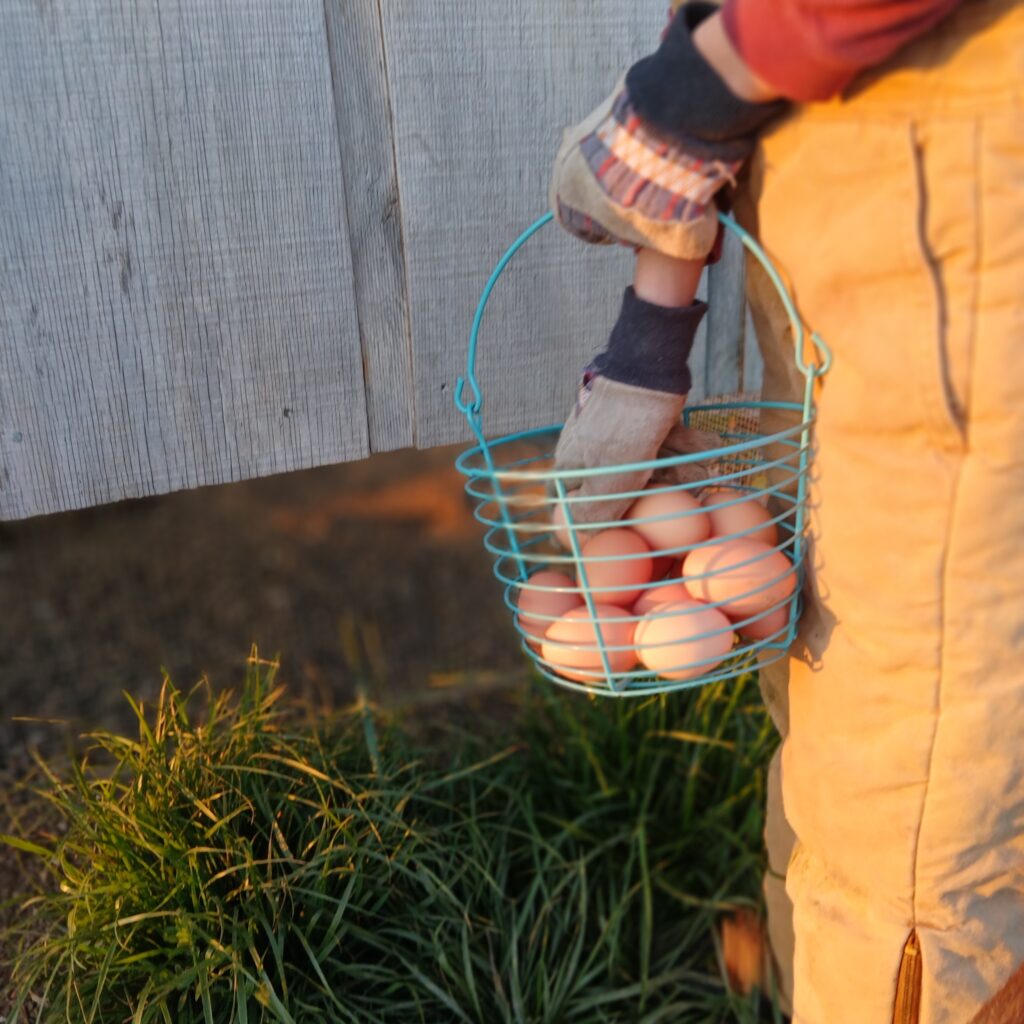
Once your chickens get into full egg production, which can vary depending on the breed you have, you may be shocked at how many eggs you suddenly have. An average age for a chicken to begin laying is 18-20 weeks. Those first eggs will be small, known as pullet eggs. Over the first few weeks they should gradually increase in size and frequency.
Don’t worry though, there are lots of ways to profit from your eggs. You can sell them or give them away to family and friends. We currently sell ours at the local famers market. Eggs are a great item to have at the farmers market. We have seen first hand what others have told us, eggs bring people to your table. They will come because they see we sell eggs and they almost always buy something else we have for sale as well.
You could also use a surplus of eggs to make freezer meals and stock up for the winter. Another way to store up eggs for a long period is to water glass them. Water glassing eggs is where you store eggs in a solution of pickling lime and water in a jar. This method seals the eggshells and prevents them from spoiling. They can last 12-18 months.
Once you have washed your eggs they will last for 2 – 3 months. Be sure to refrigerate them after washing them. Washing the eggs removes the natural protective coating on the shell which protects them from bacteria.
If you happen to raise pigs like we do, you could also consider giving any extra eggs to the pigs to cut down on feed cost.
All in all I don’t know many people that regret getting chickens. There is nothing quite like cracking a farm fresh egg knowing that what you are about to eat is healthy and delicious because of the love and care you put into it. It’s also a bonus getting to watch your chickens out in the yard just doing their thing, it makes for a great day!
I hope you found this post helpful and enjoyable!